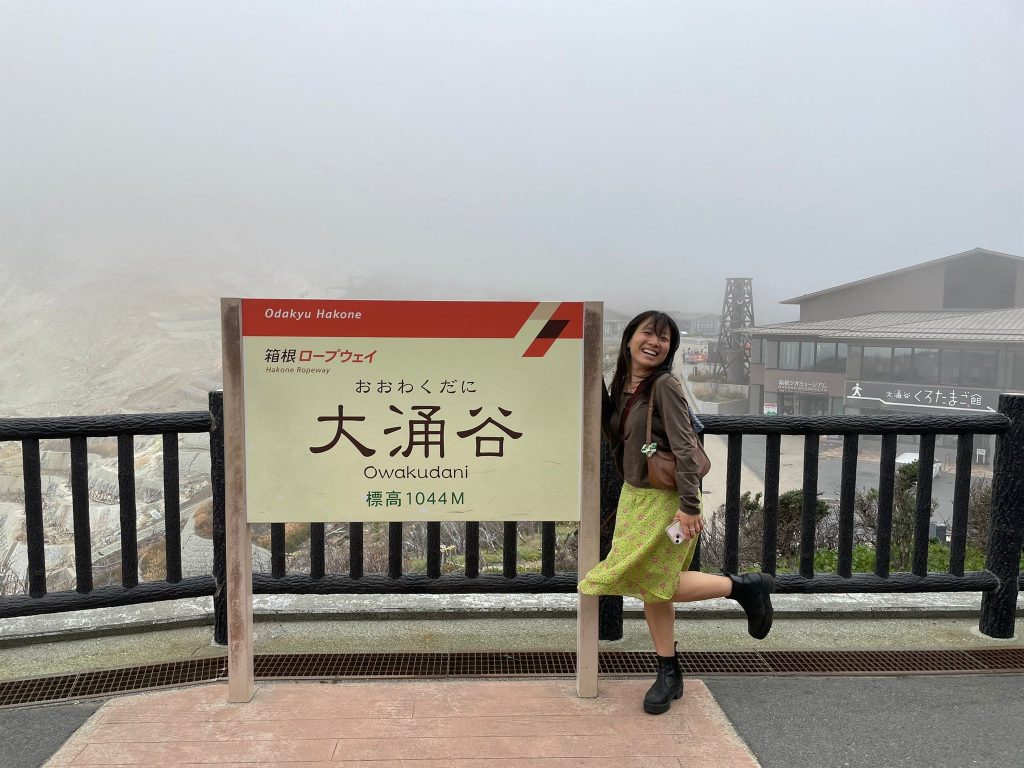By Laurie Chan, 2023-24 McCall MacBain International Fellow in Japan
I arrived in Tokyo at the peak of the hot and humid weather. I had large luggage rolling behind me and had to clarify at the checkpoint that I was a foreigner and barely knew how to speak Japanese despite assumptions based on my appearance. After getting through immigration, I was told I would be picked up by someone from the homestay company that I had booked through. We exchanged small talk as we took the 2-hour train ride to the suburbs of Tokyo where my homestay was.
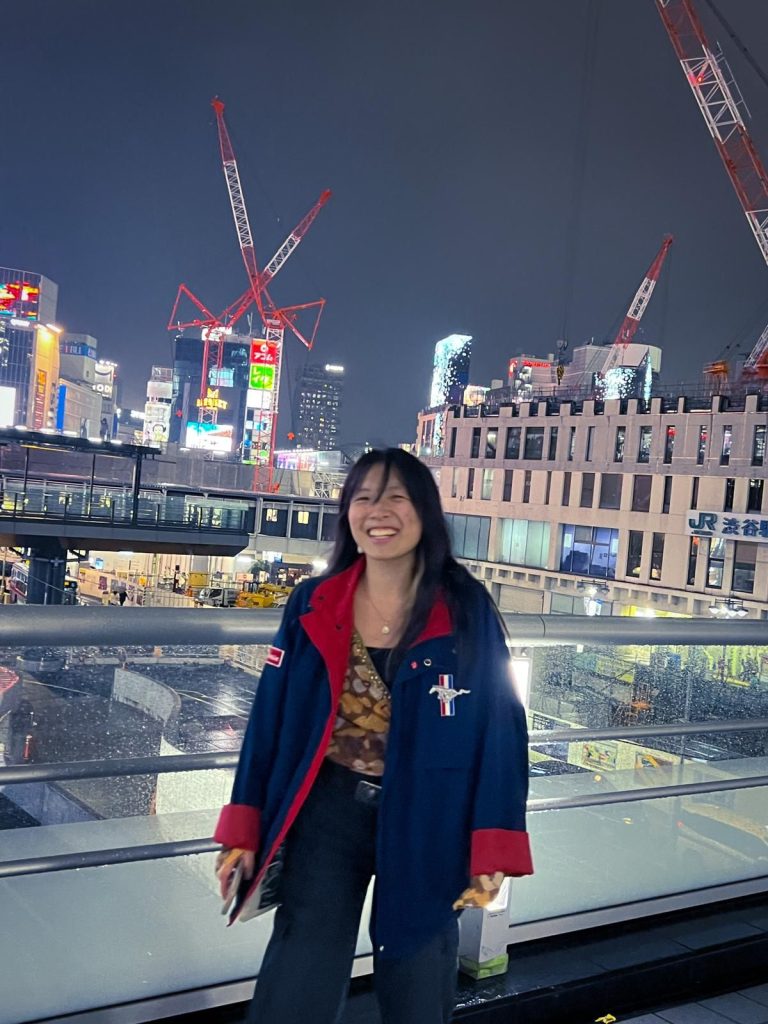 My first interaction with my homestay family was simply introducing myself, but at that point, I was unaware of the formalities, such as はじめまして (Nice to meet you) so I simply said “こんにちわ、Laurie です” (Hello, I am Laurie) and nodded at what they said. I had barely put down my bags when one of the host sons came and told me it was dinner time. And so, the adventure began. Through the weeks, I caught myself understanding more and more and being able to ask basic questions and have enough vocabulary and adjectives to describe my day at the dinner table (a whole lot of: 楽しかったです。It was fun.). My daily commute to school would sometimes take up to 1.5 hours, resulting in me being covered in sweat fanning myself with my hands in the overcrowded commuter trains while all around me were people looking not sweaty and at peace. After long days, it was always a highlight coming home to a delicious home-cooked meal from my host mother.
My first interaction with my homestay family was simply introducing myself, but at that point, I was unaware of the formalities, such as はじめまして (Nice to meet you) so I simply said “こんにちわ、Laurie です” (Hello, I am Laurie) and nodded at what they said. I had barely put down my bags when one of the host sons came and told me it was dinner time. And so, the adventure began. Through the weeks, I caught myself understanding more and more and being able to ask basic questions and have enough vocabulary and adjectives to describe my day at the dinner table (a whole lot of: 楽しかったです。It was fun.). My daily commute to school would sometimes take up to 1.5 hours, resulting in me being covered in sweat fanning myself with my hands in the overcrowded commuter trains while all around me were people looking not sweaty and at peace. After long days, it was always a highlight coming home to a delicious home-cooked meal from my host mother.
Among the many stressful moments, one of the most was registering my residence at the city hall. I had to do this within 2 weeks of arrival and so, worried that I’d somehow miss the deadline, I went within the first few days of arriving. In hindsight, I could have asked for one of my host family members to accompany me, but at that point, I felt bad for inconveniencing them. Thus, I went myself and struggled through the whole interaction and my legal residence was at the whim of the Google Translate dictation function. Everything has worked out so far, though, so I must have done something right. I have all the more respect and admiration for my ancestors who immigrated and perhaps had a somewhat similar experience in that sense, but without the technology to help them translate.
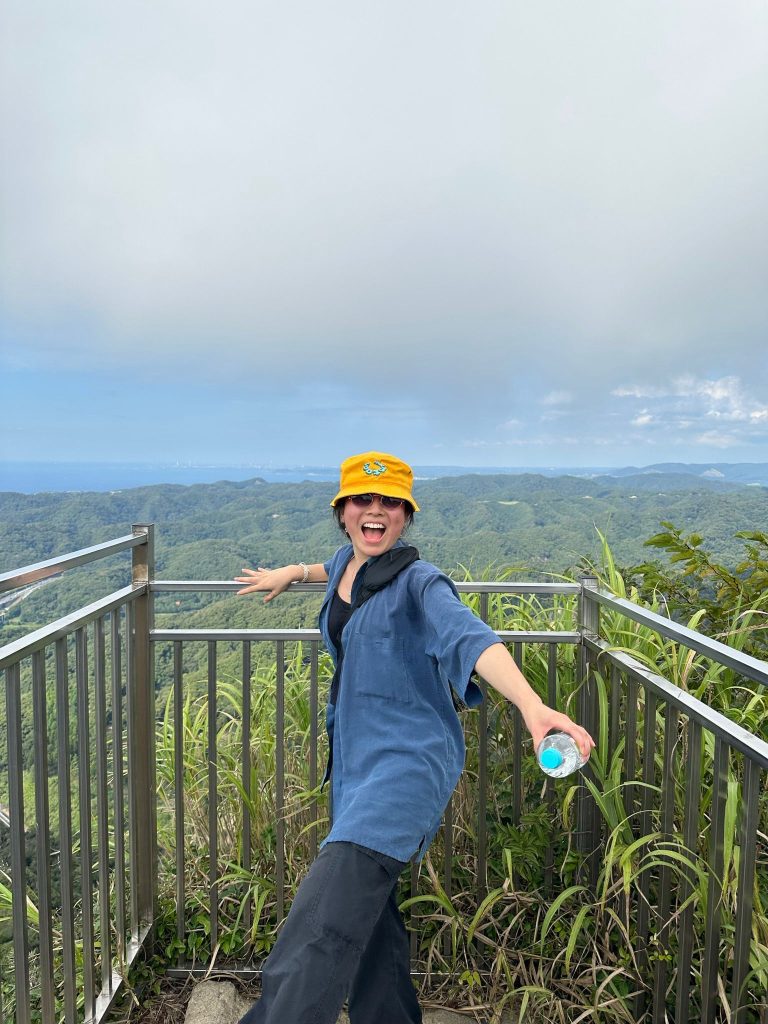 My language school has been nothing short of amazing. We have 4 hours of class a day, divided into 2-hour blocks. Each block has a different teacher, which allows us to have a range of teaching styles. They’re all evidently passionate about what they do, extremely patient, and always make class fun. Most of the teachers don’t speak English and from the start, all our classes were completely in Japanese. Somehow, though, we manage to understand and I’ve learned so much through the school so far. It’s crazy now to think I barely knew Hiragana a week before arriving in Japan and now, it’s still hard, but I can have basic interactions. I’ve met great friends through the school, and they are always down to do as much as possible. After classes, we go to different restaurants, stores, or activities and attempt to apply our new Japanese grammar structures and vocabulary right away.
My language school has been nothing short of amazing. We have 4 hours of class a day, divided into 2-hour blocks. Each block has a different teacher, which allows us to have a range of teaching styles. They’re all evidently passionate about what they do, extremely patient, and always make class fun. Most of the teachers don’t speak English and from the start, all our classes were completely in Japanese. Somehow, though, we manage to understand and I’ve learned so much through the school so far. It’s crazy now to think I barely knew Hiragana a week before arriving in Japan and now, it’s still hard, but I can have basic interactions. I’ve met great friends through the school, and they are always down to do as much as possible. After classes, we go to different restaurants, stores, or activities and attempt to apply our new Japanese grammar structures and vocabulary right away.
To escape the busy city life, I have gone on multiple hikes a bit of ways out of the city. After one day-long hike with some friends, we decided to visit a particular town that is the sister city of one of my friend’s hometowns. We made our way over by train as the sun set around us. As we walked out of the station, we saw a group of young men dressed in the same outfit and tabi shoes (split-toe shoes). We figured they must be going to a practice. We continued along and saw more individuals, pairs, and groups also wearing the same outfits. Then, we began to hear the steady rhythm of drums playing off in the distance. Of course, we had to follow the sounds.
A few more steps onto a main road, and we were face to face with a huge procession of people. At that point, we had only been in language school for a few weeks as complete beginners so our communication was limited. Nonetheless, we went up to a group of older Japanese women standing at the sides and asked in our slow, broken Japanese what was going on and what the name of the festival was. They were patient enough to hear us out and we had a lovely short interaction. It was a Japanese festival, known as a matsuri. There are countless ones as each shrine celebrates its own. They can be single or multi-day and most are held annually or seasonally or for certain historical events.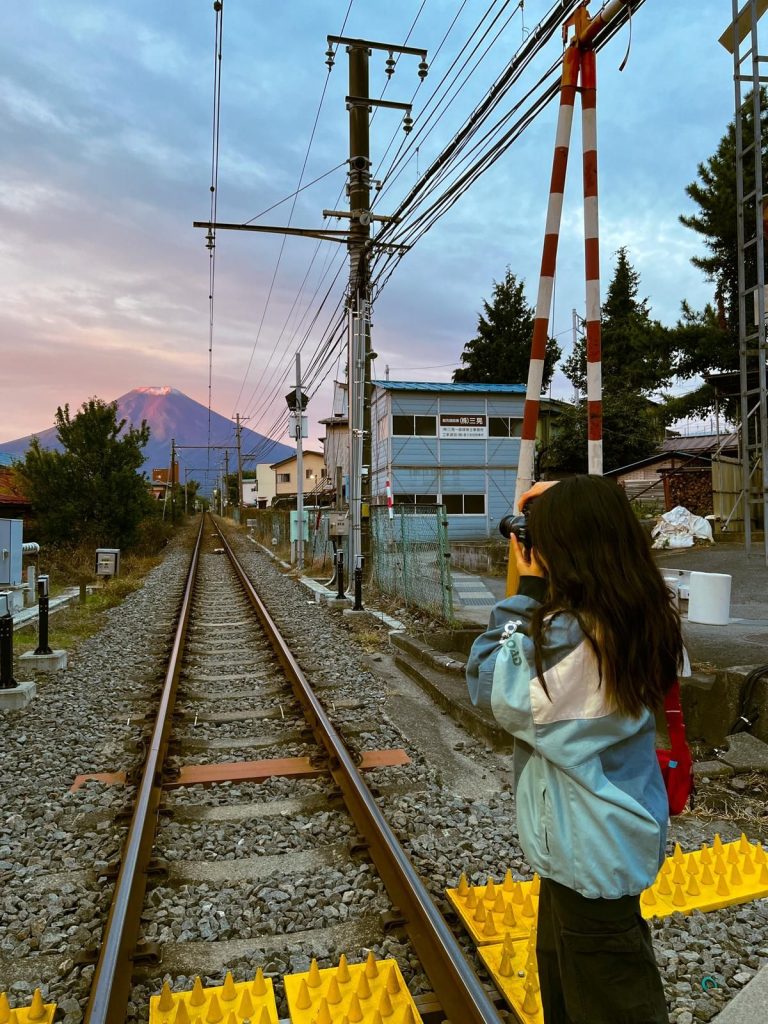
Some other fond memories include participating in the tradition of “Imohori” with my language school where we picked sweet potatoes, seeing a baseball game at the Tokyo Dome, attending part of the Tokyo Film Festival, visiting Fujiyoshida and seeing beautiful views of Fuji, dressing in traditional samurai clothes and learning basic katana moves, hiking Mount Nokogiri, Mount Okutama, and Mount Takao, taking an evening ferry across Tokyo Bay, and much more.
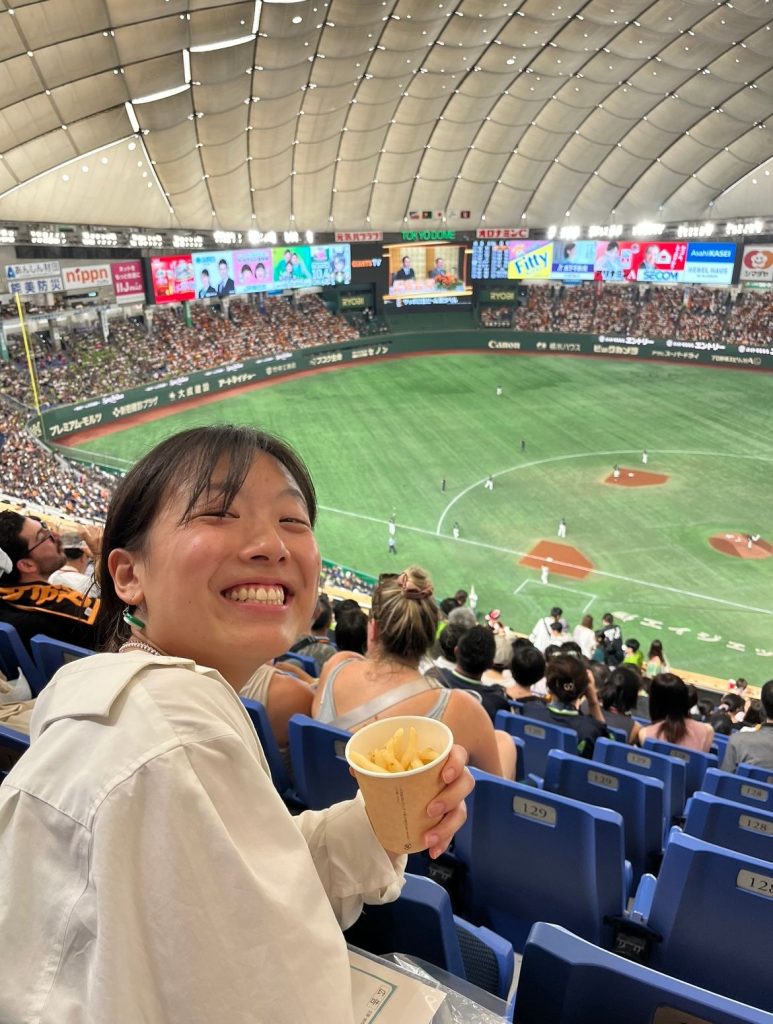 Despite being in survival mode for much of my first few months, I have been extremely grateful for the friends I’ve made, whether it be through school, mutual friends, church, random events I’ve gone to, or other activities that I’ve had the chance to try. Through these, I have found pockets of familiarity, experienced small victories in language learning, explored Japan and learned more about its culture and history, and created treasured memories I’ll always hold dear. It’s through the people I’ve met and the community I’ve built here that has made it all worth it and assured me that I’m exactly where I need to be. As with anywhere I’ve been or anything I’ve done, a place only comes to mean something when you have loved ones to experience it with. This has proven to be more than true on this crazy adventure, and I’m excited for the coming months, with its mix of challenge and fun, and growing more out of my comfort zone each day.
Despite being in survival mode for much of my first few months, I have been extremely grateful for the friends I’ve made, whether it be through school, mutual friends, church, random events I’ve gone to, or other activities that I’ve had the chance to try. Through these, I have found pockets of familiarity, experienced small victories in language learning, explored Japan and learned more about its culture and history, and created treasured memories I’ll always hold dear. It’s through the people I’ve met and the community I’ve built here that has made it all worth it and assured me that I’m exactly where I need to be. As with anywhere I’ve been or anything I’ve done, a place only comes to mean something when you have loved ones to experience it with. This has proven to be more than true on this crazy adventure, and I’m excited for the coming months, with its mix of challenge and fun, and growing more out of my comfort zone each day.
Thank you, McCall MacBain Foundation, for making this possible!
